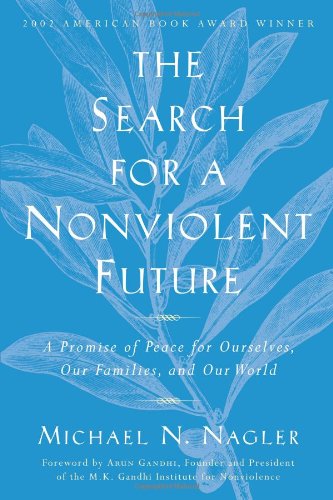“Love can never express itself by imposing suffering on others. It can only express itself by self-suffering, by self-purification.” ~ Gandhi, Mahatma, 3, p. 221
We have often had occasion to comment on self-suffering, so I would like to land on “self-purification.” What does it mean? People often view Gandhi as an ascetic who sought deprivation for its own sake, but this is far from the truth. The truth is that he took a fierce joy in living on the bare minimum, among other reasons because it enabled him to feel an intense bond with the poor, that he had never betrayed them or took advantage of his privileges at their expense. This is a far greater and more enduring satisfaction than whatever pleasures one gets from whatever indulgence: it expands our consciousness. Secondly, “self-purification” was basic training for satyagraha. Whatever we might be clinging to, from ice cream to anger, will make us that less willing and able to undergo the privations that must attend a serious nonviolent struggle. Think of nonviolence as the Olympics of the spirit.
Thanks for sharing a comment below.
About Daily Metta
 Stephanie Van Hook, the Metta Center’s executive director, launched Daily Metta in 2015 as a way to share Gandhi’s spiritual wisdom and experiments with nonviolence.
Stephanie Van Hook, the Metta Center’s executive director, launched Daily Metta in 2015 as a way to share Gandhi’s spiritual wisdom and experiments with nonviolence.
Our 2016 Daily Metta continues with Gandhi on weekdays. On weekends, we share videos that complement Michael Nagler’s award-winning book, The Search for a Nonviolent Future: A Promise of Peace for Ourselves, Our Families, and Our World. To help readers engage with the book more deeply, the Metta Center offers a free PDF study guide.
Enjoy more Daily Metta: See the archives
Get Daily Metta by email: Subscribe









Stephanie, I so much appreciate the depth of these Daily Mettas, and the time you take to write them.
Self-purification was one of the four steps of nonviolence described by Dr. King in Letter from Birmingham Jail. He got the steps from a pamphlet on nonviolence distributed by the Fellowship of Reconciliation. By self-purification, he meant examining one’s motives before engaging in direct action to eliminate any that are self-serving and also strengthening one’s spirit in order to endure whatever might result from the action. Kingian nonviolence proponents have changed this step to personal commitment, which is unfortunate for those of us who consider satyagraha to be profoundly spiritual.
As for me, I can give up my possessions and my anger.
But ice cream? That’s just asking too much!
Thank you, Carol. I didn’t know that; and I could not agree more that shying away from spirituality has hurt the field of nonviolence, among many others.
You’re OK, Kathleen. I gave up ice cream for years, so consider yourself covered. 🙂
One of my favorite Quaker writers/teachers, Rufus Jones, used to refer to people who lived their lives spiritually as “spiritual athletes,” as you suggest nonviolence is.